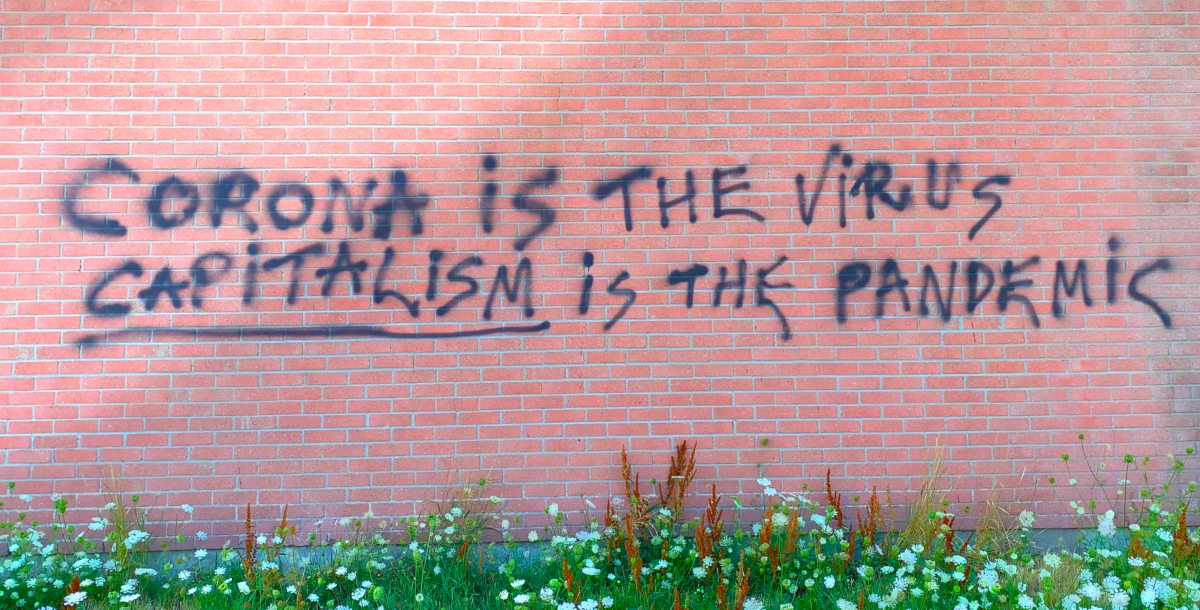The New Corporation: the Unfortunately Necessary Sequel
(Canada, 105 min.)
Dir. Joel Bakan and Jennifer Abbott
Programme: TIFF Docs
17 years ago, The Corporation set audiences reeling with its incisive revelation that since corporations are deemed legally human, an investigation into their mental state would indicate that they’re psychopaths. The filmmakers pointed out that corporations are inherently egotistical, exhibit no signs of empathy and exhibit anti-social behaviour whenever confronted by opposing points of view. Those are the telltale signs of a psychopath. It’s rare for a documentary to have a successful elevator pitch but The Corporation had one that broadly appealed to media and crowds around the world. The documentary was a huge hit and the best-selling Canadian film of the year.
That was then. This is now. Filmmakers Joel Bakan and Jennifer Abbott are back to follow up their success with an “unfortunately necessary sequel.” This film lacks a spectacular elevator pitch but that’s a standard, which few docs have ever matched. Instead, the new film adopts a scattershot approach to their investigation into the morphing of corporations. Their main point is that the world is far more corporate than it was in 2003. New media organizations, which still seemed vaguely progressive back then, are the Facebooks and Amazons of today. It’s not only mom and pop operations that are destroyed or bought out by corporations or such offshoots as capital management companies—now successful medium sized firms and co-ops (think MEC) are grist for the capitalist world.
Bakan and Abbott make that case and zero in—at first—on the new “humanist” face that corporations show to the outside world. Seemingly in response to the first film and the slew of books and docs that followed The Corporation in the Aughts, modern corps offer a humanist look, eagerly pointing out what they’re doing for the environment and the inner cities that they helped to destroy.
Jamie Dimon, CEO of J.P. Morgan is one of the prime villains in the documentary: having made hundreds of millions during the financial crisis in 2008, he is now associated with reviving Detroit, a city that had to declare bankruptcy after the fall-out from that meltdown. The point is clear. Corporations can look good by splashing cash in high profile recovery cases while profiting from a financial system that is inherently corrupt and only props up poor and middle class people or devastated cities or destroyed environments in order to look empathetic and progressive.
The problem that The New Corporation’s creators had to face is that there is too much going now to focus on a set of specific points. There’s the economy that displayed its false basis in 2008 and has been thriving on more exploitation of the globe’s resources since then. There’s ecology and climate change, which haven’t been tackled because capitalism and Chinese communism and Saudi oil kings need to extract resources now more than ever. There are political leaders like Trump and Bolsonaro, who are psychopaths working in the service of the richest companies in the world.
The New Corporation is a worthy sequel to the 2003 classic. It isn’t as tightly focused as the original but it may be impossible to achieve that acuity now. In these hard times, the creators of The New Corporation have been brave enough to tackle many of the things that ail us now. The film is a must-see if only to remind us to avoid the empty messages of hope provided by slick corporate entities. As Shakespeare wrote, “One may smile and smile and be a villain.”
The New Corporation premiered at TIFF 2020.
Read more about the film in our interview with Jennifer Abbott and Joel Bakan.












